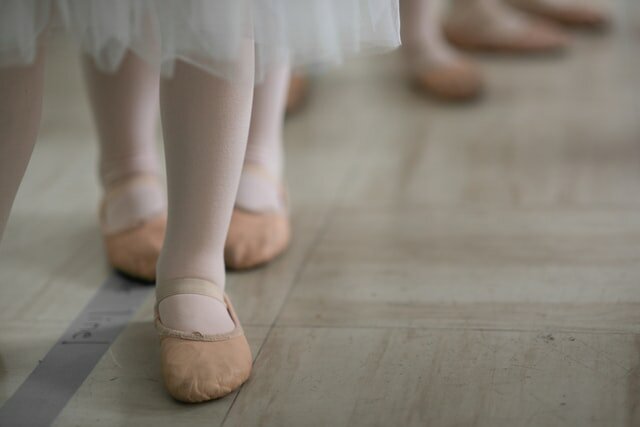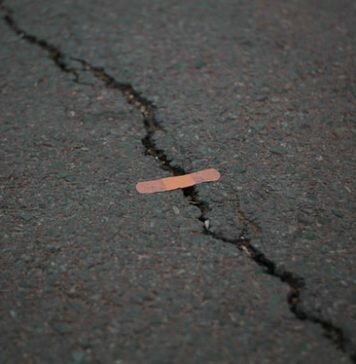A deathbed confession, 1997
Mom unburdens herself only weeks before she dies. She tells me about Mike’s abuse against his children. Her revelations confirm what I’ve known since childhood: My brother Mike is dangerous. Mom tells me about the inexplicable holes in walls throughout Mike’s house, how he and his wife ignore the cries of their baby, and how roughly they handle their toddler. What frightens her the most, she confesses, is that when she dies there will be no one left to look after her grandbabies. She doesn’t ask me to replace her, but I can take a hint.
Home for the holidays, 1999
“You fat pig!” Mike yells as he tries to lift his sweaty, four-year-old son from the shopping-cart-like metal basket at the front of the pedicab.
My nephew cries and grabs hold of the sides of the basket, refusing to budge. Mike yanks him once more, only this time a spoke catches my nephew’s bare thigh and punctures it.
Blood bubbles to the surface of my nephew’s stocky leg, then runs down it before soaking into his little white sock. I use my hoodie to try to stanch the bleeding. It won’t stop. “Call 911!” I shout. I try to calm my nephew by singing the Alphabet song. It holds his attention only so far as L-M-N-O-P, so I switch to the Barney song, “Clean up, clean up, everybody everywhere… ” Mike pushes me aside. The boys and I look on, saucer-eyed.
Edges blur, leaving but one pulsating truth at the center: Mike has gouged a hole in his son’s leg.
We drive home to Los Angeles. I don’t speak of the incident with my boys, pretending that they’re okay, and so am I. Until I’m not. A few days later, at work, I kick the snack machine in the breakroom because, “It won’t release my goddamned Doritos.” My coworkers look up from their sandwiches and stare. I slink back to my desk.
I see a therapist. I tell her about the snack machine, about my nephew, and all the stories I can think of from my childhood — beginning with the original sin.
A story I was told about the child I replaced, 1962
After adopting two boys, Mom wants a girl. Dad grants Mom her wish, just as he might purchase a diamond bauble she admires in a jewelry store window. They name the baby Sarah. All seems in order except Sarah’s skin is “ruddy,” this being the word Mom used the one and only time she told me the story, when I was 10. It means “having a healthy reddish color.” I know this because I looked it up in the student edition of Merriam-Webster that I keep atop my molded acrylic desk.
“Not to worry,” a nurse says to my parents. “The pressure in the birth canal can sometimes cause discoloration. Her skin will even out over the next few days.” Dad expresses some concern that the baby appears to be Black. “But the birth certificate says ‘Caucasian,’” counters Mom.
Over the course of the next few months, Sarah’s skin doesn’t lighten. It darkens. Mom and Dad ask questions of the pediatrician, who confirms Dad’s suspicion that the baby is Black. Mom is as shocked as Dad by the news, but she has bonded with her first daughter, and so tries to downplay the plot twist. Dad insists that raising a Black child in an all-white community recently rattled by racial violence would be too much of a hardship for the family and Sarah to bear. Dad arm-twists Mom into giving Sarah up for re-adoption. My brothers, Mike and Andy, watch as their baby sister is peeled from Mom’s arms by social workers. Their five- and eight-year-old selves fear they, too, will be repossessed.
After I’m adopted — replacing Sarah — my brothers hide me under blankets from anyone who enters our home. I am an adult before it dawns on me that I was adopted into a grieving, frightened home that harbored a humiliating secret.
A belt by any other name, 1966
I wake up to a snap followed by a scream. Is it Andy or Mike this time? Snap goes the belt again.
“AAAAH!”
It’s Mike.
A memory, 1968
I’m coloring at my child-sized pink and white desk that Grandpa made when Dad appears in the doorway with a suitcase in one hand and the black and red machine he polishes his shoes with in the other.
“Where are you going, Daddy?”
“I’m leaving, sweetheart.”
“When will you be back?”
“I won’t be back. Come give Daddy a hug.”
My first blow job, 1969
Mom goes out to dinner with her new boyfriend, and leaves Mike in charge. He invites me into his bedroom. I’m excited because he’s never let me in his room before tonight. “Have you ever seen a penis?” he asks. The way my heart thumps tells me something’s not right about this question. Still, I don’t want to be banished from my big brother’s inner sanctum so I say, “No. I’ve never seen one.” He unzips his pants. My first impression is that penises are ugly, especially when long and hard with big veins everywhere, like Mike’s is now. I resist what happens next but Mike is 16, and a wrestler. I am seven, and a ballerina. He pushes my face closer and closer to the throbbing organ I know is there but can’t see because my eyes are closed.
“Swallow,” he says, when finished. I gulp. “Don’t tell anyone or I’ll kill you.” I nod, my whole body trembling as I back out of his room.
Shock therapy, 1970
I stand with my back against the wall as Mike, wielding a butcher knife, chases Andy up the stairs. I run after them down the hallway and enter the guest room as Andy jumps from the second-story window into our snowy backyard. When the police arrive, I’m being looked after in the basement by my “Aunt” Grace, but can hear the voices in the kitchen. Mike tells the police that Andy is on LSD. Mom is crying. Andy is shouting curse words as the police force him to come with them.
The next time I see Andy, he’s much calmer. When I ask Mom what’s happened to Andy, she mumbles, “It must be the shock therapy.” I nod, even though I don’t know what shock therapy is.
California schemin’, 1971
Mom sits at the kitchen table with a wooden ruler and a foldout map of the United States. “What are you doing?” I ask.
“I’m trying to figure out which city is furthest from your dad: Los Angeles, California or Portland, Maine.”
The answer is Los Angeles.
After we move, Mom doesn’t help me get ready for school or make me breakfast anymore. She sleeps instead. Mike still wants blowjobs, and Andy gets thrown out of school a few months after we arrive.
Our little secret, 1976
“What’s the matter, honey?” Mom asks. “Please tell me, why are you are crying like this?”
It is five years since the last blow job — so many years it’s conceivable that I’ve dreamt it all. I don’t intend to break my oath to Mike, until he calls me “Emily Big Butt” under his breath at the dinner table. It’s anyone’s guess why I crack open this time when I hadn’t all the other times he teased me. I jump up from the table and run to my room. Mom finds me sitting on the edge of my bed. Everything spills out of me in great, heaving sobs. She holds me in her arms until I calm down, then presses her hands into my shoulders, looks me in the eyes and says, “Let’s just keep this our little secret. Okay?” Too upset to consider my options, I sniffle and say “okay.” Mom hugs me again.
Karma, 1980
I spread out the map on my bed and figure out which college is farthest away from my family.
Truth, 1985
The next time I mention Mike’s abuse to Mom, I’m in graduate school. I’m standing in the kitchen of my Manhattan railroad apartment. It’s a stiflingly hot summer day and I open windows, trying to create a cross breeze. Mom calls to check on me for the umpteenth time that week. I tell her I’m still depressed only this time I go one step further and share with her my recurring nightmare. The one where Mike is holding a revolver to the back of my head and I wake up when I hear the click.
A while after I hang up, the phone rings again. I hear a small voice on the other end. It takes a second before I realize it belongs to Mike. He explains that he’s calling to apologize for what he did. I have often fantasized about this moment and the verbal vivisection I’d unleash if it ever came to pass. Yet all I feel now is relief. Relief that it wasn’t a dream after all. I hang up and stare out the kitchen window, watching steam float up from the vents of the Chinese restaurant three floors below. For a moment, I float, too, on a cloud of truth, finally visible.
The therapist’s instructions, 1998
As the session draws to a close, the therapist offers a few healthy coping tips to last me until our next session, which we schedule for the following week. As I gather my belongings, she stops me. “There’s one more thing,” she says. “You should report your brother to Child Protective Services for harming his son.”
“If you don’t, I will,” she adds.
Now I’m the snack machine, and the therapist has just kicked me. I sit on the sofa holding her steady gaze. The seconds tick by as she waits for my conscience to drop into place.
Before it does, I propose a compromise. “How about I confront Mike,” I say. “I’ll demand he treat his children better or I’ll report him.”
The therapist is kind. She patiently explains how I am not going to change my brother’s parenting, and that he’d likely feel attacked and resentful if I try. “In order for him to change,” she says, “he’ll need counseling to understand his own pain and the reasons why he hurts his kids and why he hurt you, Andy, and who knows how many others.”
“You’re not equipped to offer him solutions,” she tells me. “Even if you were, in the time it would take, your nephews would continue to be at risk.”
I finally concede. “I’ll call,” I tell her. “It’s my duty, not yours, to protect my nephews.”
She directs me to a local agency. When I call, a social worker walks me through the process as I jot down notes on the back of an envelope that I keep to this day. But when I mention that my brother is out of state, she informs me that the agency has “no standing” to file a report. I must contact Child Protective Services in my brother’s home state. I hang up, exhausted, but call the next agency. The social worker takes a “good faith” report over the phone and asks if I have witnessed physical abuse or a pattern of “boundary violations,” or received a disclosure of abuse from a child. I explain what I witnessed while returning the pedicab. I also share everything Mom told me before her death.
Legacies, 2019
After one too many glasses of white zinfandel, Mom’s youngest sister, Aunt Cindy, lets it slip that Mom was raped by a half-brother I never knew about. Grandpa had chased his son off the farm with a rifle, and the incident was never mentioned again. Deprived at last of the oxygen I’ve fed it all these years, my burning resentment of Mom extinguishes. Sometimes all we know is what we’re taught.
If Mike is contacted by Child Protective Services, he never lets on. I don’t witness further abuse toward his children — only toward his wife who silently absorbs barbs about her weight and clothing, and threats that he’ll leave her if she ever cuts her hair short. As I learn more about the patterns of abuse, my best self can make out that Mike is simply a scared person hiding inside a scary person. I think back to the belt lashings and wonder, Who abused Dad? I tell myself I’ve finally broken the cycle of abuse — unless I count the times some benign misstep by one of my children triggered a disproportionate response from me.
I ask my boys, now men, “What was it like for you as a child, when I would get crazy angry?” The intellectual one answers, “Which manifestations of your reactivity are you referring to?” We unpack that. The sensitive one replies, “I was scared at times, and didn’t want to upset you because I felt like I would get ripped apart.”
I hadn’t intended to mention this last part, about my fits of rage. But now that I have, should anything happen to me, could you, from time to time, check in on my grandbabies?
*Names have been changed.
Photo by Jess Zoerb on Unsplash











